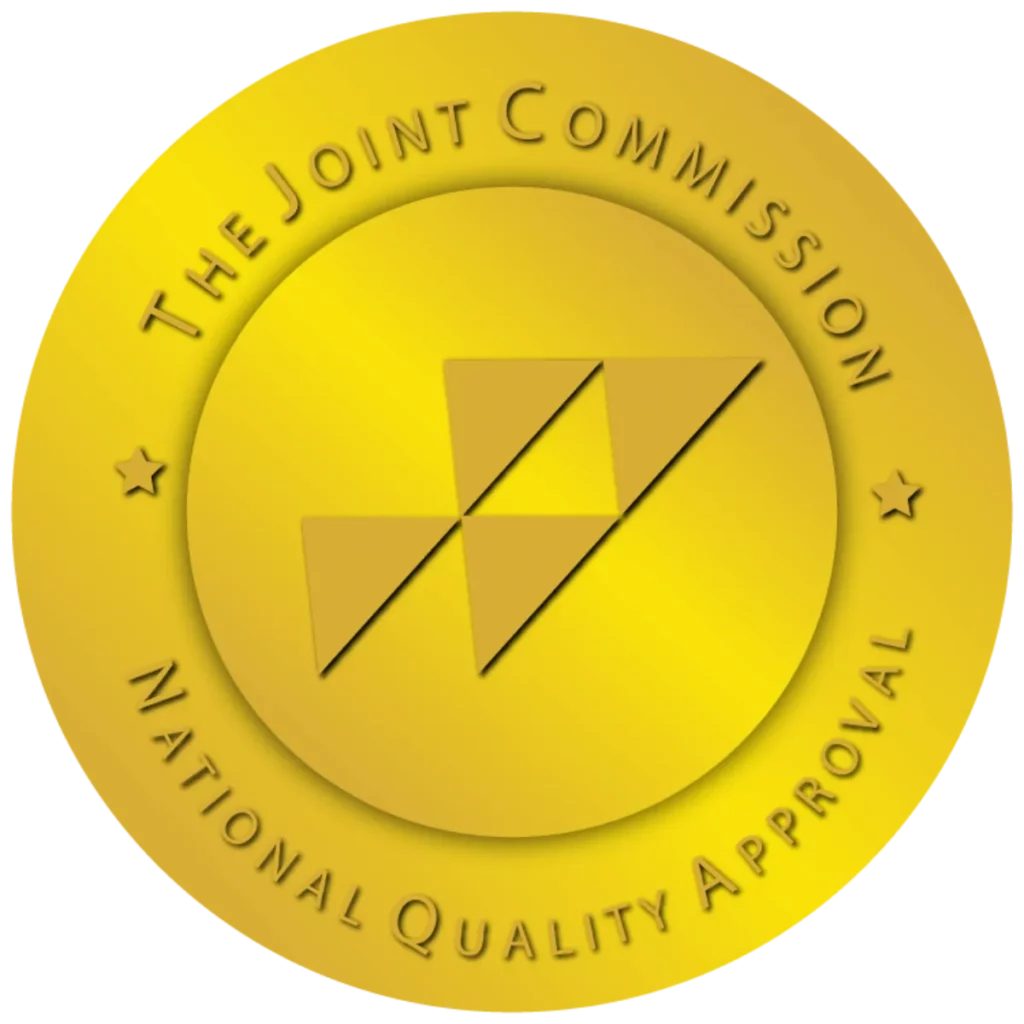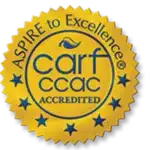Veterans Drug
DETOX CENTER
The team at Asana Recovery are dedicated to providing veteran-specific support, to tackle the unique problems, traumas, and psychological needs of helping veterans to recover and to live a healthy civilian life without drugs and alcohol.
active duty is considered the
hardest part of serving in the military
For most people, active duty is considered the hardest part of serving in the military. But, for many veterans, the difficulty happens not when you’re deployed, but when you’re asked to go home.
Reintegrating into civilian life can be difficult and traumatic for many, leading to significant reliance on drugs, alcohol, and prescription medication. As a result, 1.3 million, or 7.8% of all veterans had a substance use disorder in 2020.
In addition, more than half of all veterans show problematic relationships with drugs and alcohol. According to National Institute on Drug Abuse Military Substance Abuse statistics, over 555,000 veterans abuse prescription opioids. 48% regularly binge drink. And, 2.6 million, or 12.8% of the total population abuse marijuana.
It’s undeniable that military service greatly increases risks of drug and alcohol abuse and therefore of addiction. If you or a loved one is struggling, there is help.
SPEAK TO AN ADDICTION SPECIALIST
We are committed to providing a comfortable and effective place for clients to get clean and begin their journey in recovery. Your recovery is our number ONE priority at Asana Recovery. Call us today.
Saving lives. Supporting families. Strengthening communities.
Veterans and Substance Abuse Problems
Veterans often have significantly higher rates of substance abuse and addiction than the general population. That’s especially true in veterans who retired from military service within the last twenty years, where rates of substance addiction are almost twice that of the general population.
However, for all groups, addiction and abuse are significantly higher. For example, just over 10% of the U.S. general population qualifies as having a substance use disorder. That goes up to 12.7% of all veterans who retired in 2001 or later.
Of course, those numbers decline over time. As veterans are able to receive treatment, move into care facilities, and get the help they need, rates of addiction go down. Just 3.7% of pre-Vietnam era veterans have a substance use disorder, and Persian Gulf War veterans have addiction rates of slightly lower than the general population.
PTSD
30.9% Of male veterans and 26.9% of female veterans are diagnosed with PTSD during or after servie.
Post-Traumatic Stress Disorder (PTSD) is also one of the largest risks of substance use disorder in veterans, with 86% of veterans with PTSD binge drinking and 20% suffering from a co-occurring substance use disorder.
ANXIETY & DEPRESSION
3.1 million veterans have a diagnosed anxiety or depression disorder. Of those, some 481,000 have both a substance use a disorder and a mental illness. While rates of anxiety and depression are only slightly higher in veterans than in the general population, individuals with those disorders are at increased risk of substance abuse and addiction.
Drug and Alcohol Treatment for Vets
If you or a loved one is struggling with drug or alcohol abuse, there are plenty of options for you to seek out treatment. Among those include support through government-supported treatment programs, private treatment programs for veterans like the one at Asana Recovery, and outpatient treatment programs.
Treatment through a VA Hospital
The VA has 96 treatment locations across the U.S, which attempt to offer drug and alcohol treatment for 3.9 million veterans with drug and alcohol problems. If you want to see if you qualify
- Use the assessment on Benefits.com
- Check your Basic Medical Benefits Package for Veterans
- Check your priority group. If you’re in group 1-3, you can likely receive help fairly quickly. You are not in this group if you do not have a VA disability rating, POW status, or have not been awarded a Medal of Honor or Purple Heart. Everyone else will have longer wait times
If you qualify, you can get on a waitlist, which will range from 3 days to over 6 months, depending on the facility. Because most have a backlog, most facilities simply do not accept new applicants, which may mean you have to travel to go to treatment. You can check expected wait times for your area here.

Rehab for Veterans at Asana Recovery
While VA-provided care is a good choice for many, especially if your area has available treatment options, moving into private care can greatly speed up your access to care. If you need more space, private residential care, or specialty treatment that your VA might not be able to provide, we can help.
In addition, our treatment is covered by insurance. You can use our insurance form or contact us to check how much of your care is covered by your insurance provider or fill out or free insurance verification form here.
Asana Recovery offers
- Home-like treatment centers for residential care
- Family therapy
- Custom treatment for military personnel, you’ll always be treated with peers
- Amenities to make your stay more comfortable
- Integrated complementary therapies like lifestyle and stress management
- Ongoing aftercare
Seeking treatment at Asana Recovery will mean that you can move into treatment more quickly, will have more close contact with physicians, counselors, and psychologists, and will have the benefit of a personalized treatment program, which we adapt to your needs as you receive treatment.
GET CONFIDENTIAL HELP
GET
CONFIDENTIAL HELP
We’re Ready to Help You
Detox
Asana Recovery maintains a medical detox center, meaning we can offer medically assisted detox. If you come to our facility while still struggling with drugs or alcohol, we can ensure that you have a safe and comfortable detox.
Residential
Asana Recovery offers residential or inpatient treatment across Orange County. Our focus is on providing small, home-like facilities, where you can comfortably stay with a small group of peers to receive the direct support and contact with counselors, nurses, and therapists that you need.
Outpatient
If you live in or near Orange County, you can attend our outpatient program. This treatment plan includes either intensive outpatient or partial hospitalization based on your needs. It means staying in your own home and visiting our treatment facility 4-6 days per week.
This makes it especially important that you have access to alcohol-specific treatment programs for veterans. At Asana Recovery, we use a combination of behavioral therapy, counseling, and medication to help you reduce usage – while tackling the underlying causes behind alcohol abuse. This may include prescriptions for disulfiram, naltrexone, or acamprosate. You’ll also receive significant group therapy and individual therapy to help you learn different coping mechanisms, find better outlets, and learn to resist cravings.
Like with alcohol detox, veterans drug detox means treating the problem including addiction, seeking behavior and cravings. It also means treating the underlying problems, such as trauma, inability to readjust, mental health problems, and stress. That can mean drug treatment requires significant personalization to ensure you’re getting the treatment you need built around your specific problems.
At Asana Recovery, our dual diagnosis track approaches addiction treatment by treating problems based on criticality. Therefore, we focus on symptoms that impact your health first. For example, major depression or suicidal ideation, binge drinking, or reckless behavior. Then, we introduce motivational therapy to treat problems interfering with motivation to invest in therapy. Then, we start treating underlying causes of addiction while working to mitigate the problems and symptoms of your mental health disorder.
Aftercare and Ongoing Treatment
Veterans are exposed to significant risks, to trauma, to stress, and to difficulty fitting in in their daily lives. That often means that a single 30-day treatment session is not enough to ensure your long-term recovery. Here, factors like your ability to reintegrate into work, a home, or other parts of life are also important. For that reason, Asana Recovery offers ongoing treatment and aftercare to help ensure that you stay clean and sober after treatment. For example:
- Halfway houses to help transition back into life. This may be especially important for individuals who are currently homeless when they move into our care. Halfway houses provide a structured group living accommodation, where you’ll be held accountable for substance use, and encouraged and helped to get a job, find a new place to live, and to build stable living patterns for yourself.
- In some cases, we’ll help our alumni find jobs and places to work after graduating from our program
- We often help our alumni find placement with self-help groups like AA, NA, SMART Recovery, or LifeRing Recovery, ensuring you have ongoing accountability and support
- All of our alumni have access to support and ongoing counseling, with the option for follow-up treatment
Reintegrating into life after military service can be intensely difficult, the same can be said of doing so after rehab. That’s why we offer significant and ongoing mental health treatment and addiction treatment for our alumni.
SPEAK TO AN ADDICTION SPECIALIST
We are committed to providing a comfortable and effective place for clients to get clean and begin their journey in recovery. Your recovery is our number ONE priority at Asana Recovery. Call us today.
Saving lives. Supporting families. Strengthening communities.



Resources
Programs
State Licenses
- 300043AP | exp. 08/31/2024
- 300043BP | exp. 02/28/2026
- 300043CP | exp. 11/30/2024
- 300043DP | exp. 04/30/2025
- 300043EP | exp. 06/30/2024
Accessibility
Accessibility modes
Online Dictionary
Readable Experience
Visually Pleasing Experience
Easy Orientation
Asana Recovery
Accessibility Statement
- asanarecovery.com
- April 30, 2024
Compliance status
We firmly believe that the internet should be available and accessible to anyone, and are committed to providing a website that is accessible to the widest possible audience, regardless of circumstance and ability.
To fulfill this, we aim to adhere as strictly as possible to the World Wide Web Consortium’s (W3C) Web Content Accessibility Guidelines 2.1 (WCAG 2.1) at the AA level. These guidelines explain how to make web content accessible to people with a wide array of disabilities. Complying with those guidelines helps us ensure that the website is accessible to all people: blind people, people with motor impairments, visual impairment, cognitive disabilities, and more.
This website utilizes various technologies that are meant to make it as accessible as possible at all times. We utilize an accessibility interface that allows persons with specific disabilities to adjust the website’s UI (user interface) and design it to their personal needs.
Additionally, the website utilizes an AI-based application that runs in the background and optimizes its accessibility level constantly. This application remediates the website’s HTML, adapts Its functionality and behavior for screen-readers used by the blind users, and for keyboard functions used by individuals with motor impairments.
If you’ve found a malfunction or have ideas for improvement, we’ll be happy to hear from you. You can reach out to the website’s operators by using the following email
Screen-reader and keyboard navigation
Our website implements the ARIA attributes (Accessible Rich Internet Applications) technique, alongside various different behavioral changes, to ensure blind users visiting with screen-readers are able to read, comprehend, and enjoy the website’s functions. As soon as a user with a screen-reader enters your site, they immediately receive a prompt to enter the Screen-Reader Profile so they can browse and operate your site effectively. Here’s how our website covers some of the most important screen-reader requirements, alongside console screenshots of code examples:
-
Screen-reader optimization: we run a background process that learns the website’s components from top to bottom, to ensure ongoing compliance even when updating the website. In this process, we provide screen-readers with meaningful data using the ARIA set of attributes. For example, we provide accurate form labels; descriptions for actionable icons (social media icons, search icons, cart icons, etc.); validation guidance for form inputs; element roles such as buttons, menus, modal dialogues (popups), and others. Additionally, the background process scans all of the website’s images and provides an accurate and meaningful image-object-recognition-based description as an ALT (alternate text) tag for images that are not described. It will also extract texts that are embedded within the image, using an OCR (optical character recognition) technology. To turn on screen-reader adjustments at any time, users need only to press the Alt+1 keyboard combination. Screen-reader users also get automatic announcements to turn the Screen-reader mode on as soon as they enter the website.
These adjustments are compatible with all popular screen readers, including JAWS and NVDA.
-
Keyboard navigation optimization: The background process also adjusts the website’s HTML, and adds various behaviors using JavaScript code to make the website operable by the keyboard. This includes the ability to navigate the website using the Tab and Shift+Tab keys, operate dropdowns with the arrow keys, close them with Esc, trigger buttons and links using the Enter key, navigate between radio and checkbox elements using the arrow keys, and fill them in with the Spacebar or Enter key.Additionally, keyboard users will find quick-navigation and content-skip menus, available at any time by clicking Alt+1, or as the first elements of the site while navigating with the keyboard. The background process also handles triggered popups by moving the keyboard focus towards them as soon as they appear, and not allow the focus drift outside of it.
Users can also use shortcuts such as “M” (menus), “H” (headings), “F” (forms), “B” (buttons), and “G” (graphics) to jump to specific elements.
Disability profiles supported in our website
- Epilepsy Safe Mode: this profile enables people with epilepsy to use the website safely by eliminating the risk of seizures that result from flashing or blinking animations and risky color combinations.
- Visually Impaired Mode: this mode adjusts the website for the convenience of users with visual impairments such as Degrading Eyesight, Tunnel Vision, Cataract, Glaucoma, and others.
- Cognitive Disability Mode: this mode provides different assistive options to help users with cognitive impairments such as Dyslexia, Autism, CVA, and others, to focus on the essential elements of the website more easily.
- ADHD Friendly Mode: this mode helps users with ADHD and Neurodevelopmental disorders to read, browse, and focus on the main website elements more easily while significantly reducing distractions.
- Blindness Mode: this mode configures the website to be compatible with screen-readers such as JAWS, NVDA, VoiceOver, and TalkBack. A screen-reader is software for blind users that is installed on a computer and smartphone, and websites must be compatible with it.
- Keyboard Navigation Profile (Motor-Impaired): this profile enables motor-impaired persons to operate the website using the keyboard Tab, Shift+Tab, and the Enter keys. Users can also use shortcuts such as “M” (menus), “H” (headings), “F” (forms), “B” (buttons), and “G” (graphics) to jump to specific elements.
Additional UI, design, and readability adjustments
- Font adjustments – users, can increase and decrease its size, change its family (type), adjust the spacing, alignment, line height, and more.
- Color adjustments – users can select various color contrast profiles such as light, dark, inverted, and monochrome. Additionally, users can swap color schemes of titles, texts, and backgrounds, with over 7 different coloring options.
- Animations – epileptic users can stop all running animations with the click of a button. Animations controlled by the interface include videos, GIFs, and CSS flashing transitions.
- Content highlighting – users can choose to emphasize important elements such as links and titles. They can also choose to highlight focused or hovered elements only.
- Audio muting – users with hearing devices may experience headaches or other issues due to automatic audio playing. This option lets users mute the entire website instantly.
- Cognitive disorders – we utilize a search engine that is linked to Wikipedia and Wiktionary, allowing people with cognitive disorders to decipher meanings of phrases, initials, slang, and others.
- Additional functions – we provide users the option to change cursor color and size, use a printing mode, enable a virtual keyboard, and many other functions.
Browser and assistive technology compatibility
We aim to support the widest array of browsers and assistive technologies as possible, so our users can choose the best fitting tools for them, with as few limitations as possible. Therefore, we have worked very hard to be able to support all major systems that comprise over 95% of the user market share including Google Chrome, Mozilla Firefox, Apple Safari, Opera and Microsoft Edge, JAWS and NVDA (screen readers), both for Windows and for MAC users.
Notes, comments, and feedback
Despite our very best efforts to allow anybody to adjust the website to their needs, there may still be pages or sections that are not fully accessible, are in the process of becoming accessible, or are lacking an adequate technological solution to make them accessible. Still, we are continually improving our accessibility, adding, updating and improving its options and features, and developing and adopting new technologies. All this is meant to reach the optimal level of accessibility, following technological advancements. For any assistance, please reach out to

